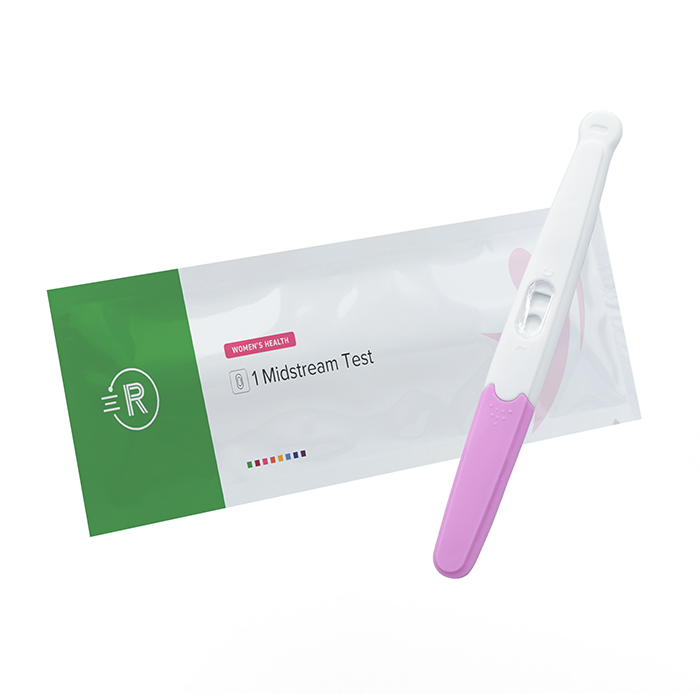
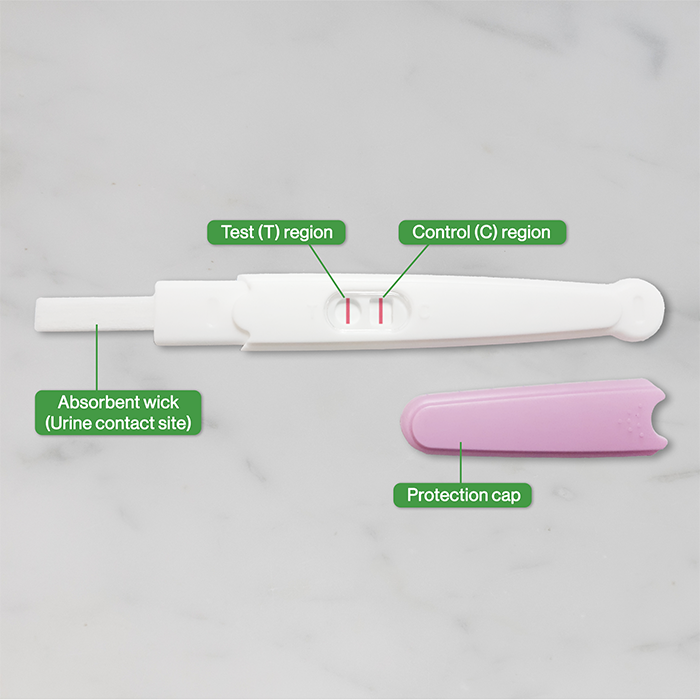
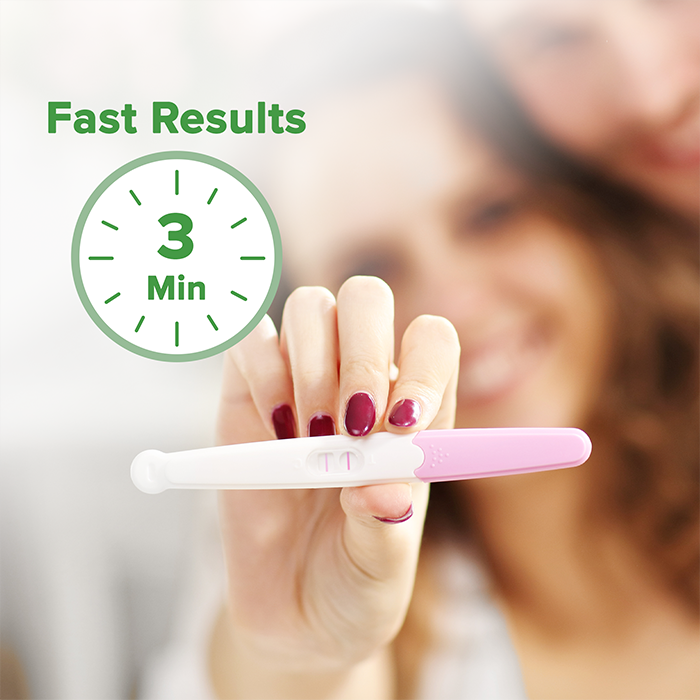
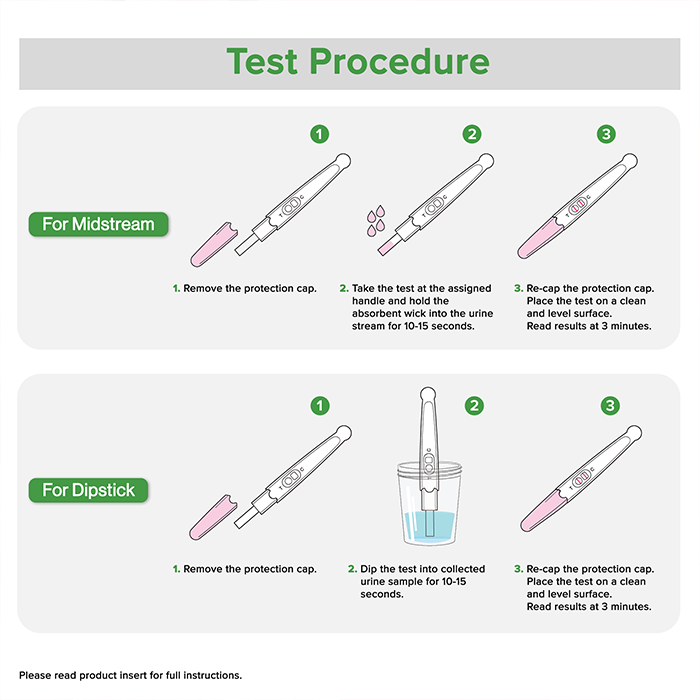
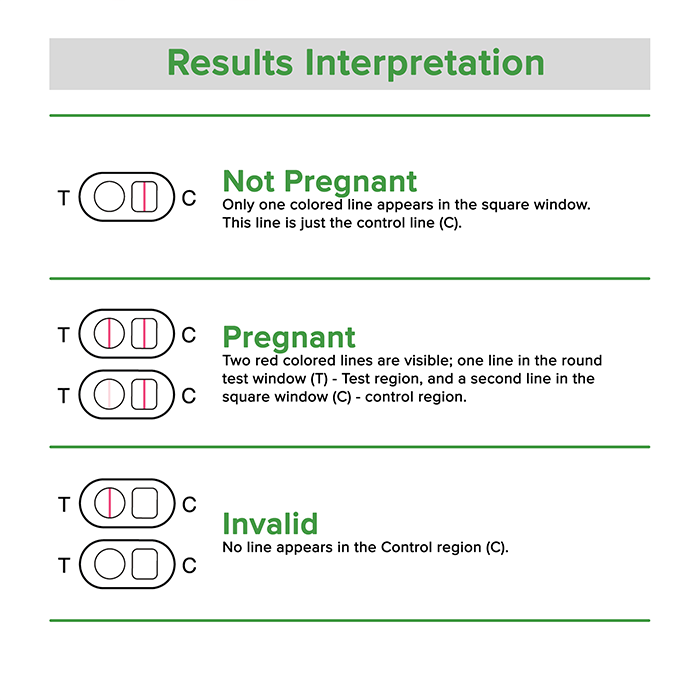





The Rapid Response™ At-Home Pregnancy Test is a rapid, qualitative immunoassay for the determination of human chorionic gonadotropin (hCG) in urine specimen at 20 mIU/mL or above. This kit is intended for use as an aid in the early detection of pregnancy.
The Rapid Response™ At-Home Pregnancy Test is a rapid, qualitative immunoassay for the determination of human chorionic gonadotropin (hCG) in urine specimen at 20 mIU/mL or above. This kit is intended for use as an aid in the early detection of pregnancy.
Aids in the early detection of pregnancy
Read results in 3 minutes
Detects levels of hCG at and above 20 mIU/mL
Human chorionic gonadotropin (hCG) is a glycoprotein hormone produced by the developing placenta shortly after fertilization. In normal pregnancy, hCG can be detected in both serum and urine as early as 7 to 10 days after conception1-4. hCG level continues to rise very rapidly, frequently exceeding 100 mIU/mL by the first missed menstrual period2-4, and peaking in the 30,000 – 100,000 mIU/mL range by 10-12 weeks into pregnancy.
The appearance of hCG in urine soon after conception and its rapid rise in concentration makes it an ideal marker for the early detection and confirmation of pregnancy. However, elevated hCG levels are frequently associated with trophoblastic and nontrophoblastic neoplasm and hence these conditions should be considered before a diagnosis of pregnancy can be made.
The test utilizes monoclonal antibodies to selectively detect elevated levels of hCG in urine. At the level of claimed sensitivity, the Rapid Response™ At-Home Pregnancy Test shows no cross-reactivity interference from the structurally related glycoprotein hormones hFSH, hLH and hTSH at physiological levels.
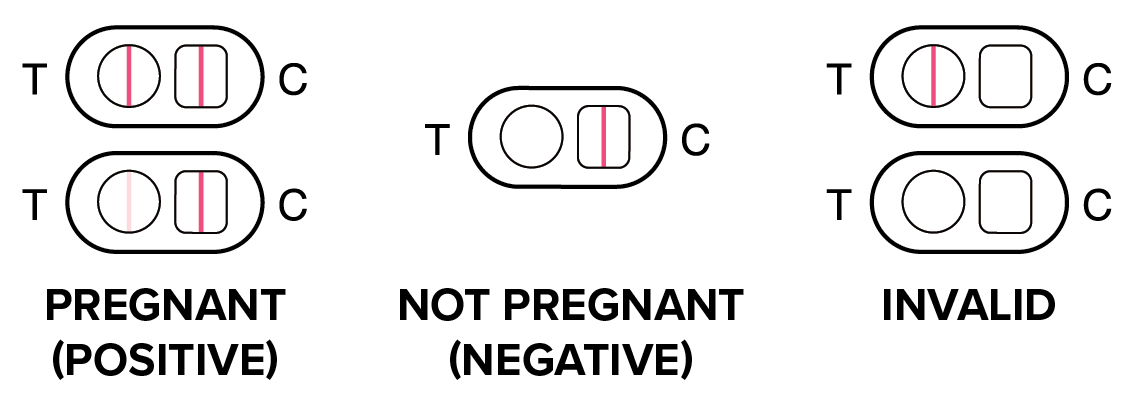
Please refer to the product insert for more details.
The Rapid Response™ At-Home Pregnancy Test detects hCG (human chorionic gonadotropin) in your urine. hCG is a hormone that the body produces during pregnancy.
This means that the hCG pregnancy hormone was detected. However, this test is not conclusive. You should contact your doctor to confirm any positive results.
You may not be pregnant, or, it may be too early to tell. If you do not get your period within 7 days, you should re-test. If your re-test results are negative and you do not get your period, contact your doctor.
Yes. In some cases, the urine will not contain enough hCG to be detected. If you still suspect a pregnancy, perform another test 2 or 3 days later using a f irst morning urine sample.
Only medications containing the hCG should affect the results. The test should not be affected by hormone treatments containing alcohol, painkillers, antibiotics, or a contraceptive pill.
- Batzer FR. Fertility and Sterility 1980; 34:1.
- Catt KJ, Dufan ML, Vaitukaitis JL. J. Clin. Endocrinol. Metab. 1975; 40:537.
- Baunstein GD, Rasor J, Adler D, Danzer H, Wade ME. Am. J. Obstet. Gynecol. 1976; 126:678.
- Lenton EA, Neal LM, Sulaiman R. Fertility and Sterility 1982; 37:773.
- Please note that certain products may only be available in specific regions; kindly consult with a sales representative for further information regarding product availability.
- The information provided on this website is for educational purposes only and should not be construed as medical advice. Always consult with a qualified healthcare professional regarding any medical concerns or conditions.
- Our products are intended for use as specified in the product documentation. It is important to carefully read and follow all instructions provided with the product.
